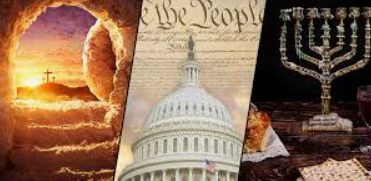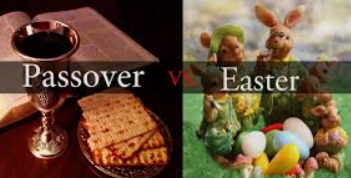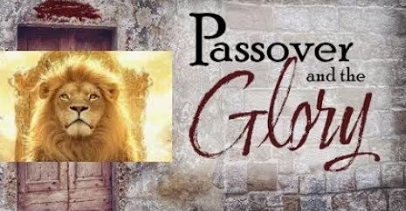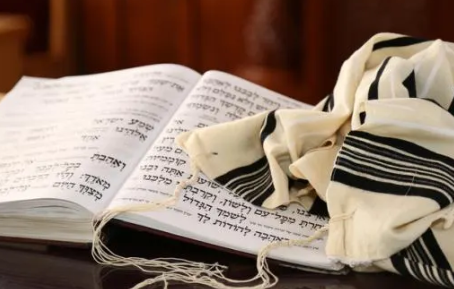Live Passover Easter Glory Special Broadcast Prayer
Live Passover Easter Glory Special Broadcast Prayer
This weekend, Americans will observe two important holidays: Passover and Resurrection Sunday.
For millions, this is a joyful season, a time of thanksgiving and celebration. Our Jewish friends commemorate the miraculous liberation from slavery in Egypt through the “passing over” of the forces of destruction, or the sparing of the firstborn of the Israelites. Christians celebrate the resurrection of Jesus on the third day, a powerful reminder of the spiritual liberty and life we have because of His sacrifice on the cross.
If we pause for a moment, we see that both holidays share a common theme: freedom.
This season helps ground us with an eternal perspective. It also prompts us to reflect on our country’s foundational priorities. Especially, it highlights how incredibly blessed we are to live in a nation built on the promise and principle of religious freedom.
As many of us look forward to this Easter and Passover, let’s not forget that not too long ago our liberty to celebrate these holidays was under significant threat.
Wind the clock back to 2020, and this special and sacred season of the year was marked by government officials shutting down houses of worship all across the country. Attending a religious service in-person (or even a safe CDC compliant drive-in service) was on the verge of being considered a criminal act. Some state officials even prohibited people getting together in their own homes for a Bible study.
The worst of the pandemic appears to be behind us, and many Americans will finally have an opportunity to attend and participate a worship service or communal celebration in-person. Many will perhaps do so for the first time in two years. We’ve come a long way from the constitutional crisis that threatened to “suspend” our God-given rights. That’s good news—and we should be thankful that a vast number of Americans are once again living in liberty.
There are many lessons to learn during Easter and Passover. Here is a vital one that we cannot miss: Religious liberty is special and unique. It’s a liberty in America’s DNA. You simply cannot discuss America without talking about the bedrock upon which it was built: The right of every citizen to freely live out their faith. Without religious freedom, the rest of the civil liberties we cherish will soon come crumbling down.
This all boils down to something simple, yet profound: Religious freedom is worth defending. The more intently we look around, it’s undeniable we’re in the midst of an intense battle for our First Freedom in America—and this fight is far from over
Passover and Easter
Passover and are both significant religious holidays that occur around the same time each year, typically in the spring. Passover, a Jewish holiday, commemorates the liberation of the Israelites from Egyptian slavery, while Easter, a Christian holiday, celebrates the resurrection of Jesus Christ.
Passover begins on the 15th of the Hebrew month of Nisan and lasts for seven to eight days. It is celebrated with a Seder dinner, a traditional meal that includes symbolic foods and retelling the story of the Exodus. Easter, on the other hand, is a moveable feast that falls on the first Sunday after the first full moon following the vernal equinox. This date can vary each year, leading to differences in timing between Passover and Easter.
Despite their different origins and observances, Passover and Easter share some similarities. Both holidays are associated with themes of redemption and new beginnings. Passover celebrates the deliverance of the Jewish people from slavery, while Easter celebrates the deliverance from sin through the resurrection of Jesus Christ
The frequent overlapping of Easter and Passover — of the Christian Holy Week with our eight-day celebration of Passover — merits attention. Unlike the yoking of Christmas and Hanukkah, Easter and Passover are festivals of equal gravity. Side by side they bring to light the deep structures of both religions.
Moreover, since the had stipulated that the month in which the exodus from Egypt occurred should mark the start of a new year (Exodus 12:2), the end of the prior year was subject to periodic extension in order to keep the Jewish lunar calendar in sync with the solar year. Thus, if the barley in the fields or the fruit on the trees had not ripened sufficiently for bringing the omer [the first barley sheaf, which was donated to the Temple] or the first fruits to the Temple, the arrival of Passover could be delayed by declaring a leap year and doubling the final month of (Tosefta Sanhedrin 2:2).
How Are Easter and Passover Similar?
-
The connection to Jewish people Jesus, Himself was a Jew, and Jewish people celebrate Passover.
-
Pesach seder Jews celebrate Passover by having a Pesach seder. The Last Supper of Christ before his crucifixion was also a Passover seder.
-
Delivery from some form of hopelessness The Jews were delivered from slavery, and Christians were delivered from sin.
-
Their dates Both of these holidays are celebrated around similar dates in spring.
-
The symbol of the egg For Jews, the egg symbolizes rebirth as they were “reborn” after being delivered from slavery. For Christians, the hollow egg represents the empty tomb of Christ.
How Are Easter and Passover Different?
-
Religion Passover is celebrated by Jews, whereas Christians celebrate Easter.
-
The person celebrated Passover is in celebration of Moses, while Easter is a celebration of Jesus Christ.
-
Duration Passover lasts 7-8 nights, while Easter is only one night.
-
Symbols Jewish symbols of Passover include wine and unleavened bread—Matzo, a flat, cracker style Jewish bread. It is made to be this way to symbolize the haste that the Jews were in when they fled Egypt. They did not have time to let their bread rise. The symbols of Easter are hollow eggs to represent the empty tomb of Christ and bunnies and ducklings to represent spring, fertility, and purity.
In short, Easter and Passover were destined to coincide time and again.
Both Festivals Emphasize History and Hope
Second, in both festivals nature and history converge with a resounding message of hope. The renewal of nature that comes with spring amplifies the promise of redemption embedded in the historical events being commemorated. To each faith community, God’s presence manifests itself in two keys, in nature and through history.
Yet, in both, the preferred medium is history, a legacy of the biblical shift to monotheism. Judaism and Christianity rest firmly on the foundation stories recounted ritually in their respective spring festivals. In Egypt, the family of Jacob had morphed into a nation welded together by the bitter experience of oppression.
Redemption by God imbued them with the national mission to create a body politic of a nobler order. Though their descendants failed, the body of religious literature which recorded their efforts and voiced their ideals would challenge humanity even as it would comfort them in their long exile. To recall the exodus in dark times nurtured the yearning for a future restoration, which is why Passover ends with the reciting of a haftarah [prophetic reading] that bristles with this-worldly messianism (Isaiah 10:32-12:6).
If Passover is largely about Egypt, Easter is largely about Passover. Its historical setting is Jerusalem at Passover, the Last Supper could well have been an embryonic seder, and Jesus is fated to become the paschal lamb. Indeed, the new Catechism of the Catholic Church calls Easter “The Christian Passover” (no. 1170) and speaks of the “Paschal mystery of Christ’s cross” (no. 57).
The good news is that the death of one has the capacity to save many. The resurrection of Jesus is the ultimate affirmation of life or in the words of the Byzantine liturgy:
Christ is risen from the dead!
Dying, he conquered death;
To the dead, he has given life (no. 638).
Finally, because the message of both festivals is so central to the belief system of each faith community, it interlaces the liturgy year round. In the Haggadah we read that Rabbi Elazar ben Azariah was already advanced in years before he fathomed that the exodus from Egypt should be recalled by every Jew twice daily, in the evening as well as in the morning. That is the reason for the addition at the third paragraph of the Shema [a prayer said twice daily] in which this bedrock fact is affirmed. God’s compassion obliges us to sanctify our lives.
Correspondingly, for Catholics and many Protestants the weekly sacrament of communion, reenacting the last supper, turns God’s saving grace into a lived reality.
Passover is Communal, While Easter is Individual
Still for all their commonalities, Passover and Easter diverge fundamentally. While both festivals are about delivery from a state of despair, be it slavery or sin, Passover heralds the birth of the Jewish people as a force for good in the comity of nations. In contrast, Easter assures the individual Christian life eternal. Passover summons Jews collectively into the world to repair it; Easter proffers a way out of a world beyond repair.
Passover reflects a worldview that devalues life after death and privileges the community over the individual. Easter bespeaks a religion that reverses both sets of priorities, enabling it to comfort those who had lost faith in the gods of Rome.
Passover’s Connection to Rosh Hashanah
It is well known that Passover is not the only Jewish new year, that in fact it came to share that role with Rosh Hashanah. Whereas our months are numbered from [when Passover falls], the years are counted from [the month in which falls]. The reason for that anomaly is the development of Rosh Hashanah, after the canonization of the Hebrew Bible, perhaps concomitantly with the emergence of Christianity, into a festival that addressed itself solely to the fate of the individual.
The Mishnah stresses that on Rosh Hashanah alone God has “all inhabitants of the world pass before Him, like flocks of sheep” (Rosh Hashanah 1:2). On the other three pilgrimage festivals, including Passover, the world is judged by God collectively. The expansion of the nameless first day of the seventh month, when loud blasts were to be sounded (Leviticus 23:24 and Numbers 29:1), into a solemn day of judgment for every single member of humanity suggests a Jewish response to a society with a heightened sense for the importance of the individual.
The result, however, is not a transformation of Judaism. Its deep structure remains intact. Rosh Hashanah joins Passover; it does not replace it. While the valence of the individual is definitely elevated, the priority of the group is not devalued. Judaism continues to be animated by a spirit of communitarianism.
Likewise, the dominant orientation stays this-worldly. Rosh Hashanah and Yom Kippur are not about getting into heaven. Our profusion of prayers carries aloft a modest request of God: to give us but one more year to try again, to live our life in such a manner as to make a difference. Our task is to mend the world, not flee it. The retention of two new years, one in the spring, the other in the fall, bespeaks the remarkable effort to keep polarities in balance.
Anyone can join.
Anyone can contribute.
Anyone can become informed about their world.
"United We Stand" Click Here To Create Your Personal Citizen Journalist Account Today, Be Sure To Invite Your Friends.
Before It’s News® is a community of individuals who report on what’s going on around them, from all around the world. Anyone can join. Anyone can contribute. Anyone can become informed about their world. "United We Stand" Click Here To Create Your Personal Citizen Journalist Account Today, Be Sure To Invite Your Friends.
LION'S MANE PRODUCT
Try Our Lion’s Mane WHOLE MIND Nootropic Blend 60 Capsules
Mushrooms are having a moment. One fabulous fungus in particular, lion’s mane, may help improve memory, depression and anxiety symptoms. They are also an excellent source of nutrients that show promise as a therapy for dementia, and other neurodegenerative diseases. If you’re living with anxiety or depression, you may be curious about all the therapy options out there — including the natural ones.Our Lion’s Mane WHOLE MIND Nootropic Blend has been formulated to utilize the potency of Lion’s mane but also include the benefits of four other Highly Beneficial Mushrooms. Synergistically, they work together to Build your health through improving cognitive function and immunity regardless of your age. Our Nootropic not only improves your Cognitive Function and Activates your Immune System, but it benefits growth of Essential Gut Flora, further enhancing your Vitality.
Our Formula includes: Lion’s Mane Mushrooms which Increase Brain Power through nerve growth, lessen anxiety, reduce depression, and improve concentration. Its an excellent adaptogen, promotes sleep and improves immunity. Shiitake Mushrooms which Fight cancer cells and infectious disease, boost the immune system, promotes brain function, and serves as a source of B vitamins. Maitake Mushrooms which regulate blood sugar levels of diabetics, reduce hypertension and boosts the immune system. Reishi Mushrooms which Fight inflammation, liver disease, fatigue, tumor growth and cancer. They Improve skin disorders and soothes digestive problems, stomach ulcers and leaky gut syndrome. Chaga Mushrooms which have anti-aging effects, boost immune function, improve stamina and athletic performance, even act as a natural aphrodisiac, fighting diabetes and improving liver function. Try Our Lion’s Mane WHOLE MIND Nootropic Blend 60 Capsules Today. Be 100% Satisfied or Receive a Full Money Back Guarantee. Order Yours Today by Following This Link.










